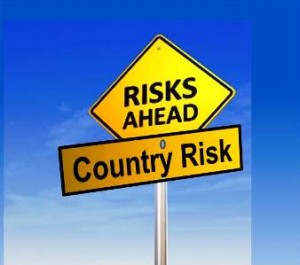 Indonesia – a special tax on imports of raw materials;
Indonesia – a special tax on imports of raw materials;- Korea (South) – joining the bandwagon in the direction of looser monetary policies;
- Thailand – lower interest rates as well;
- Ukraine – the IMF is granting a USD 17.5-billion bailout.
ALGERIA: To preserve the country’s stability through the Arab Spring, the regime has relied heavily on a mix of police power and profligate spending on salaries and social programs. This is about to become much more difficult as fiscal and external cushions are being used up.
CUBA: The US Government is eager to get diplomatic ties restored before the regional heads of state summit in Panama and there have been indications that the Castro regime is willing to bend a little. But there is still a long way to go to a normalization of relations in general, and most of the claims of what this would achieve, politically or economically, remain pipedreams
INDONESIA: The rupiah is likely to remain one of the weaker Asian currencies because the authorities want it that way. The Indonesian economy is not doing badly and is likely to respond to higher fiscal spending this year, as the government steps up outlays on social programs and infrastructure.
LIBYA: The unraveling of this failed state has received relatively little attention in recent months, and yet there is the possibility that large parts of it could become a satellite of the Islamic State only a few miles away from Europe. The odds of its two rulers getting together and forming a unity government in opposition to such a development are slim.
MEXICO: Concerned about the speed of the peso’s decline, the Central Bank has changed its intervention strategy. It has also cut its 2015 GDP forecast for a second time. The government has sweetened the tax terms for energy deals.
PHILIPPINES: The year 2015 is shaping up as another solid one for the economy with a rapid expansion of real GDP and subdued inflation, even as President Aquino pursues his anti-corruption crackdown, which has led to delays in many public projects. The Central Bank is keeping interest rates on hold and is signaling that it is prepared to do so for much of the rest of this year.
RUSSIA: The ruble has bounced back from record lows hit in January, but the combination of its plunge, the collapse of oil prices and Western sanctions are now hitting the economy hard. They are doing so in an uneven manner, underscoring that the impact of such embargoes is hard to control. Worst affected are the Russian people.
VIETNAM: The outlook is for gradually improving growth with contained inflation. It will be a while, though, before the country can absorb all the new entrants into the work force, so employment emigration will continue to be a factor. Remittances help to keep the external accounts easily manageable.
This page is provided by S.J. Rundt & Associates, Inc., specialists in country risk assessment, consultants to multinational companies & banks, and publishers of Rundt’s World Business Intelligence and The Financial Executive’s Country Risk Alert. To order a subscription or individual issues of these reports, in print or by e-mail, contact S.J. Rundt & Associates, P.O. Box 1572, Montclair, NJ 07042; Telephone: (973) 731-7502, Fax: (973) 731-7503; E-mail: info@rundtsintelligence.com; Web site: www.rundtsintelligence.com.























